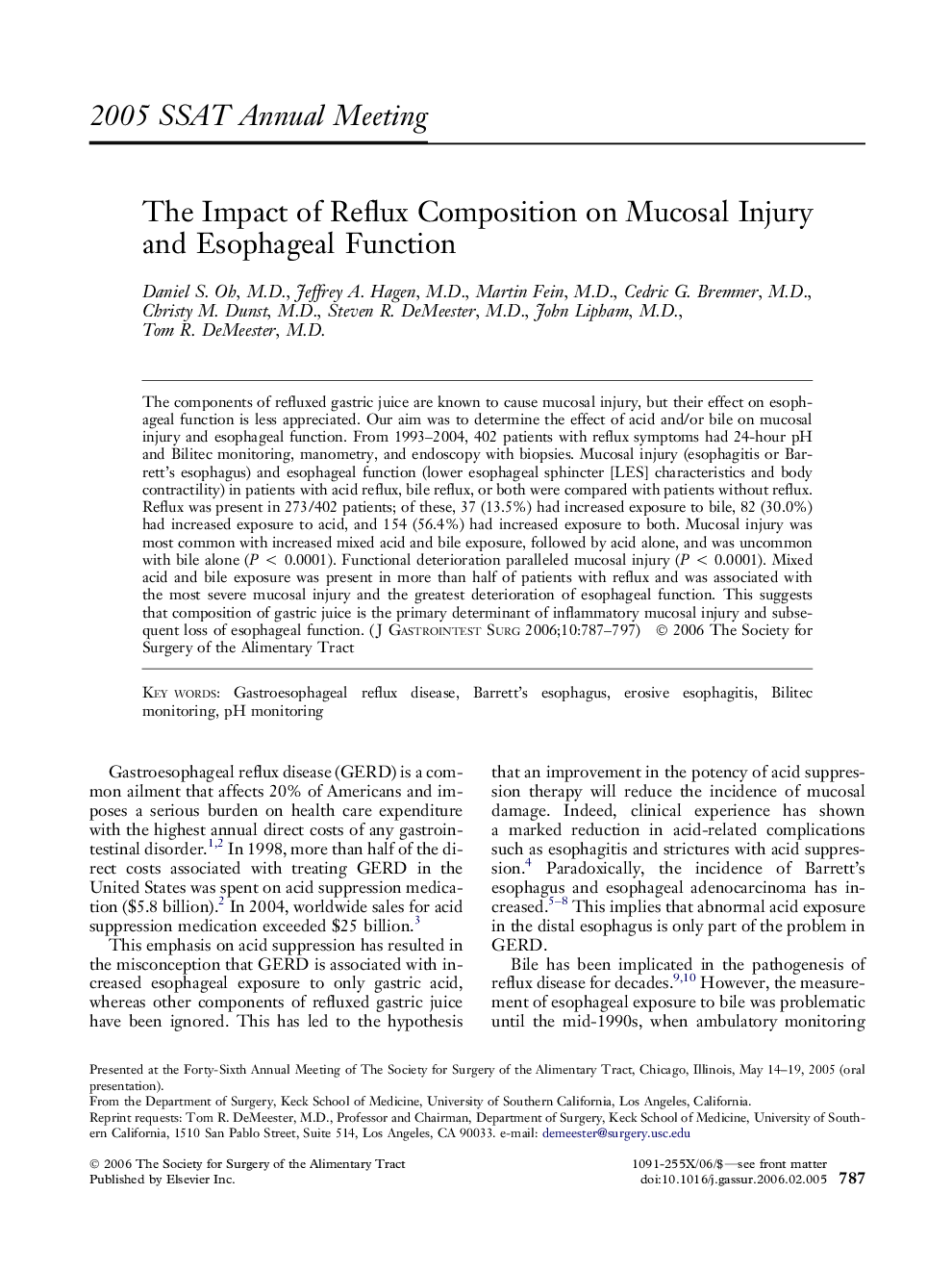| Article ID | Journal | Published Year | Pages | File Type |
|---|---|---|---|---|
| 4297160 | Journal of Gastrointestinal Surgery | 2006 | 11 Pages |
Abstract
The components of refluxed gastric juice are known to cause mucosal injury, but their effect on esophageal function is less appreciated. Our aim was to determine the effect of acid and/or bile on mucosal injury and esophageal function. From 1993-2004, 402 patients with reflux symptoms had 24-hour pH and Bilitec monitoring, manometry, and endoscopy with biopsies. Mucosal injury (esophagitis or Barrett's esophagus) and esophageal function (lower esophageal sphincter [LES] characteristics and body contractility) in patients with acid reflux, bile reflux, or both were compared with patients without reflux. Reflux was present in 273/402 patients; of these, 37 (13.5%) had increased exposure to bile, 82 (30.0%) had increased exposure to acid, and 154 (56.4%) had increased exposure to both. Mucosal injury was most common with increased mixed acid and bile exposure, followed by acid alone, and was uncommon with bile alone (P < 0.0001). Functional deterioration paralleled mucosal injury (P < 0.0001). Mixed acid and bile exposure was present in more than half of patients with reflux and was associated with the most severe mucosal injury and the greatest deterioration of esophageal function. This suggests that composition of gastric juice is the primary determinant of inflammatory mucosal injury and subsequent loss of esophageal function.
Related Topics
Health Sciences
Medicine and Dentistry
Surgery
Authors
Daniel S. M.D., Jeffrey A. M.D., Martin M.D., Cedric G. M.D., Christy M. M.D., Steven R. M.D., John M.D., Tom R. M.D.,
